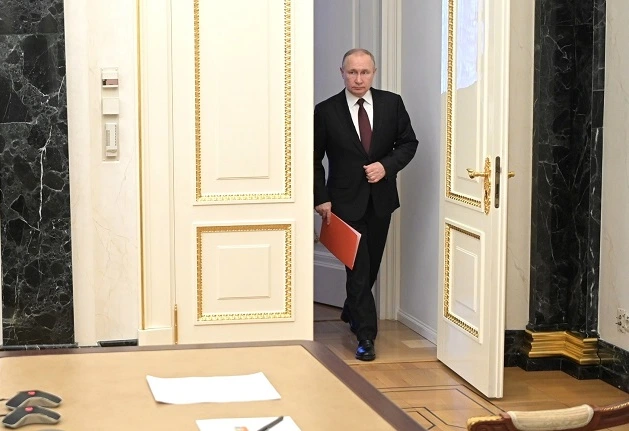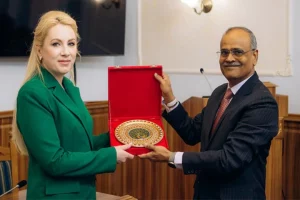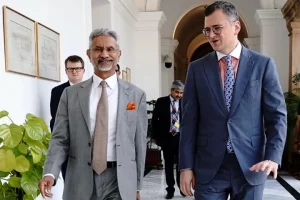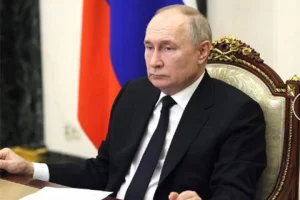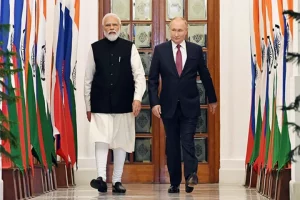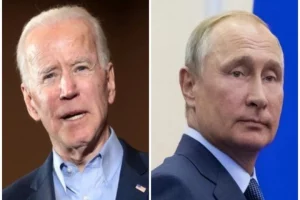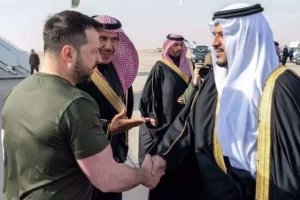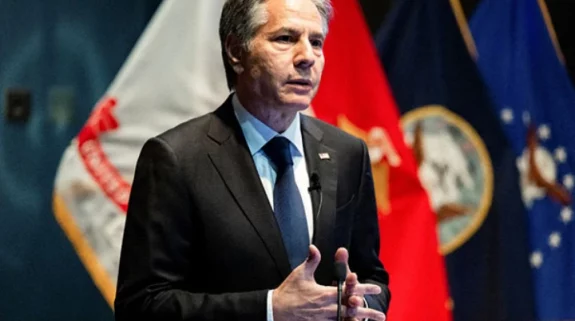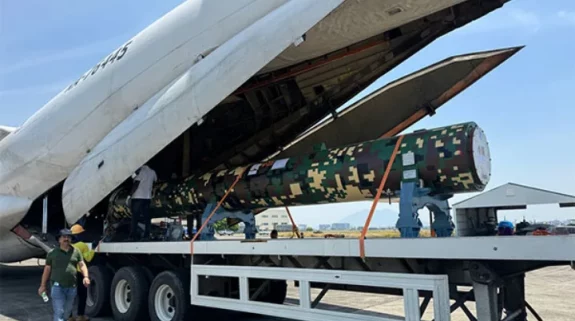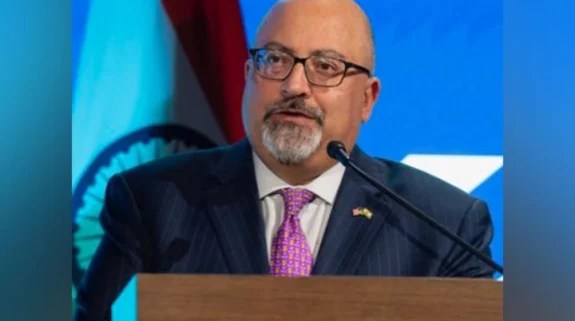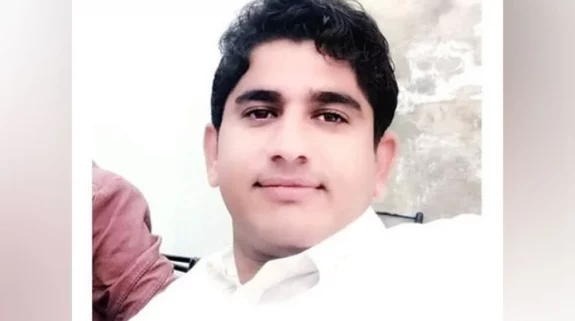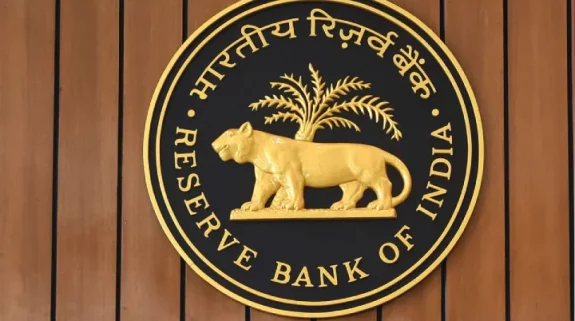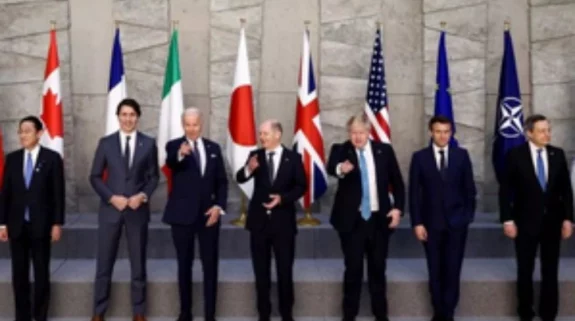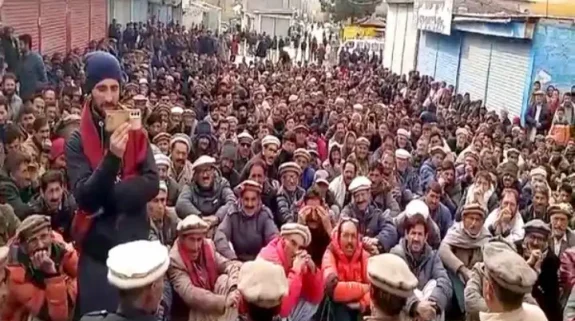Russia has declared that its core war objective in Ukraine was not to partition the country, but to ensure its neutrality.
A top Russian official said that troops had crossed into Ukraine, with the objective of safeguarding Moscow’s security, which had been challenged by the very real prospect of the Kyiv joining NATO- a hostile western alliance on Russia’s doorstep.
Russia also wants that the Ukraine jettison neo-Nazi elements, which are rabidly anti-Moscow for historical reasons, from the establishment in Kyiv.
Kremlin Spokesman Dmitry Peskov told Sky News Arabia that after the so-called Maidan square “revolution” of 2014 that had ousted a legitimate democratically elected government, Ukraine had fallen under the influence of Nazi ideas. "We want to see Ukraine demilitarized, we want to see Ukraine free of Nazi ideology," Peskov observed.

Kremlin Spokesman Dmitry Peskov (Image courtesy: Kremlin.ru)
"Also, we want to see that the neutral status of Ukraine is fixed in its Constitution and we want to have guarantees that weapons being able to change the security balance in Europe cannot be deployed" in the country.
Peskov was detailing Russian President Vladimir Putin’s earlier statement that Ukraine must adopt a position of political “neutrality,” implying that Kiev should legally commit that it would not become a part of any military alliance. Besides, he had stressed that the Ukrainian establishment must undergo de-Nazification.
During its ongoing military operation, the Russians are apparently gunning for the neo-Nazi Azov Regiment. The unit is part of the National Guard of Ukraine, based in Mariupol, in the Azov Sea coastal region. All its members are contract combatants, drawn from 22 countries. These “volunteer battalions” have been engaged with much of the fighting against pro-Russian separatists in the Donbass region in eastern Ukraine.
Unsurprisingly, fighting in the area around Mariupol has been intense following Russia’s invasion of Ukraine.
Simultaneously, Peskov pointed out that since Russia had recognised the Donetsk and Lugansk People’s Republic (DPR, LPR), Moscow was obliged to safeguard their security, Tass news agency reported. But he added that Moscow was taking steps to disarm Ukraine, whose actions pose a threat to DPR and LPR’s security.
Last week the Russian foreign minister had pointed to two other conditions for lasting peace in the region. The minister had pointed out that NATO must, first, abandon the “Bucharest formula” that the grouping had adopted during its 2008 Bucharest summit. The Bucharest formula envisions inclusion of Ukraine and Georgia in the US-led military bloc. "Western countries should refrain from establishing military facilities on the territory of former USSR states that are not members of the alliance, including the use of their infrastructure for conducting any military activity.”
Significantly, Lavrov implied that the Baltic states of Estonia, Latvia and Lithuania, which have already joined NATO, but were part of the USSR after World War II, are not on Moscow’s military radar.
Also Read: Russia spells out four-point formula to end Ukraine war
Second, NATO must follow the NATO-Russia Founding Act of 1997 which froze the grouping's military capabilities, including strike [capabilities], and NATO infrastructure to that year, Lavrov said.
Separately, Russia's Deputy Foreign Minister Sergey Ryabkov told RBC on Thursday that Moscow was ready for a dialogue with the West on security guarantees and strategic stability issues.
Ryabkov in his interview pointed out that on December 17, 2021, the Russian Foreign Ministry issued draft agreements on the security guarantees that Moscow would like to receive from the US and NATO. The documents demand that NATO must cease its eastward expansion. It should also roll up its military infrastructure to the 1997 borders.
According to a Tass report, Washington and NATO handed over to Moscow their written responses to Russia’s security proposals on January 26, 2022. The West apparently in its response in February failed to make crucial concessions to Russia’s proposals.
Also Read: Russia says it is ready to talk with the West on a peace formula to end Ukraine war






